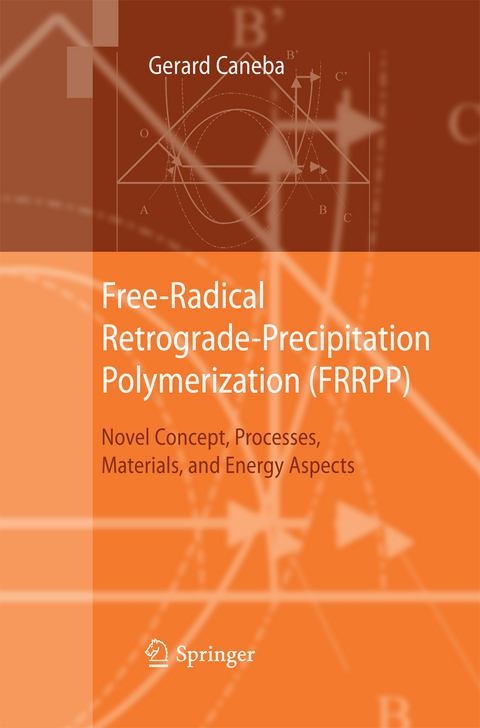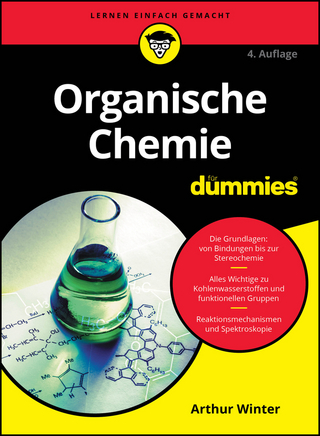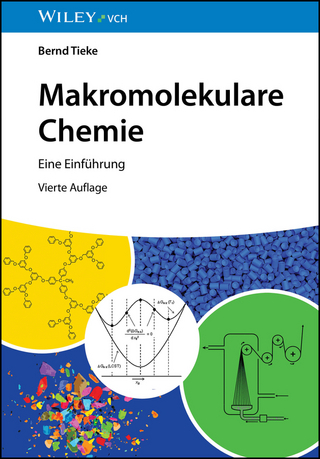
Free-Radical Retrograde-Precipitation Polymerization (FRRPP)
Springer Berlin (Verlag)
978-3-642-42434-2 (ISBN)
The free-radical retrograde-precipitation polymerization (FRRPP) process was introduced by the author in the early 1990s as a chain polymerization method, whereby phase separation is occurring while reactive sites are above the lower cr- ical solution temperature (LCST). It was evident that certain regions of the product polymer attain temperatures above the average ?uid temperature, sometimes rea- ing carbonization temperatures. During the early stages of polymerization-induced phase separation, nanoscale polymer domains were also found to be persistent in the reacting system, in apparent contradiction with results of microstructural coarsening from constant-temperature modeling and experimental studies. This mass con?- ment behavior was used for micropatterning, for entrapment of reactive radical sites, and for the formation of block copolymers that can be used as intermediates, surf- tants, coatings, coupling agents, foams, and hydrogels. FRRPP-based materials and its mechanism have also been proposed to be relevant in energy and environmentally responsible applications. This technology lacks intellectual appeal compared to others that have been p- posed to produce polymers of exotic architectures. There are no special chemical mediators needed. Control of conditions and product distribution is done by p- cess means, based on a robust and ?exible free-radical-based chemistry. Thus, it can readily be implemented in the laboratory and in production scale.
Foreword Background1. Phase Separation Thermodynamics2. Polymer Transport Processes3. Qualitative Mathematics and Nonlinear Dynamics4. Phase Separation Kinetics5. Conventional Polymerization Kinetics and Processes FRRPP Concept1. Connection to Nanotechnology2. Local Heating Phenomenon3. Polymerization Kinetics4. Polymer Solution Thermodynamics and Transport Considerations5. Energy Analysis Polymerization Processes1. Homopolymerizations2. Copolymerizations Product Materials1. Homopolymers and Statistical Multipolymers2. Block Copolymers3. Reactive Polymer Intermediates4. Surfactants5. Composites and Blends6. Coatings7. Foams8. Lithographically Patterned Polymers Energy Uses1. Surfactant-based Waterflooding for Subterranean Oil recovery2. Foamflooding Subterranean Oil Recovery3. Recovery of Bitumen from Tar Sands4. Extraction of Vanadium and Sulfur from Oil/Bitumen Future Outlook1. Polymers for Defense and Homeland Security2. Conceptual Connections to Energy-producing Isotopes3. High Temperature Fuel Cells4. Microfluidics from Patterned Hydrogels5. Nanopatterning6. Carbon Dioxide Sequestration and Related Uses7. Other Possible Applications
| Erscheint lt. Verlag | 11.11.2014 |
|---|---|
| Zusatzinfo | XIV, 310 p. |
| Verlagsort | Berlin |
| Sprache | englisch |
| Maße | 155 x 235 mm |
| Gewicht | 498 g |
| Themenwelt | Naturwissenschaften ► Chemie ► Organische Chemie |
| Naturwissenschaften ► Chemie ► Physikalische Chemie | |
| Technik ► Elektrotechnik / Energietechnik | |
| Technik ► Maschinenbau | |
| Schlagworte | Chemistry • Energy confinement • extraction • FRRPP • fuel cell • Industrial Chemistry • Materials • Phase separation • Polymer • Polymers • thermodynamics |
| ISBN-10 | 3-642-42434-1 / 3642424341 |
| ISBN-13 | 978-3-642-42434-2 / 9783642424342 |
| Zustand | Neuware |
| Haben Sie eine Frage zum Produkt? |
aus dem Bereich


